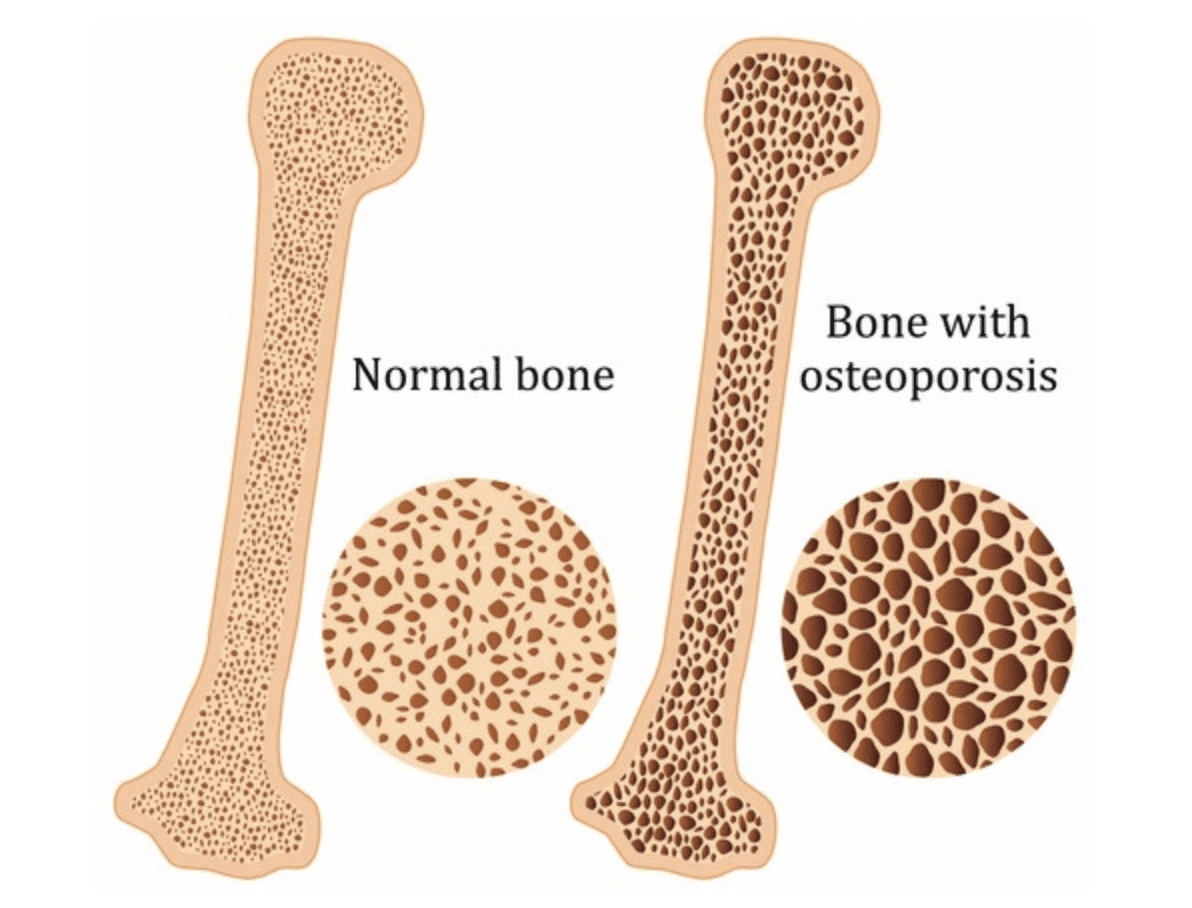5 Essential Tips To Reboot Your Bones

Vitamins K (specifically K2) and D are both fat-soluble vitamins and play a central role in calcium metabolism. These nutrients work as a team to balance calcium in your body. And, the evidence is showing that Vitamin D and K combined help increase absorption and help your body achieve peak serum levels without toxicity risk. Think of them as the dynamic duo for your bones, longevity, heart health, immune system, and hormonal health.
If you’re taking extra vitamin D without additional vitamin K, you’re increasing your risk of depositing calcium in areas that your body doesn’t need it…such as your arteries and soft tissue. Think of vitamin K as the man standing in the road leading traffic telling vitamin D where to go.
If your body is starving for calcium, every cell in your body takes a serious hit…from your muscle cells to your immune cells, and from your brain cells to your bone cells.
Your bones are like busy worker bees, constantly making and storing marrow, which manufactures white and red blood cells. And to keep your framework strong, your bones are constantly rebuilding themselves to better adapt to changes in your body like your weight.
To find out how much calcium you should be taking, and if you’re starved for calcium, take this quick quiz from Dr. Sara Gottfried. If you answer “yes” to three or more questions, you could be calcium deficient.
- Do you get anxious, nervous or feel hyper?
- Do you get panic attacks or have performance anxiety?
- Do you have bad uterine cramps during your period?
- Do you get muscle spasms or Charlie horses?
- Do you have chest pain or heaviness in your chest?
- Does your face or eye twitch?
- Do you get every cold and flu that comes around?
- Does it take you a long time to recover from illness?
- Do you feel like you are never well?
- Do you have Osteoporosis, Osteopenia, or a history of fractures?
If you answered “yes” to three or more questions, you could be calcium deficient.
It all comes down to this…if your cells are craving calcium, the time is NOW to fulfill your body’s needs! Start by checking out these 5 essential tips to reboot your bones.
1 – Remember the number 1,200
Although many of us are aware of the need for calcium, we still don’t get enough. Women need between 1,000 and 1,200 milligrams per day, depending on their age and degree of risk for bone loss. The National Academy of Sciences recommends the following daily intake:
Ages 19-50: 1,000 mg/day
Age 51+: 1200 mg/day
Calcium is best absorbed if you take it in doses of 500 mg or less, between meals. Avoid taking calcium with iron.
2 – Magnesium Is A Must
A variety of other vitamins and minerals get into the bone-building act. Magnesium is especially important, and must be present in at least a 1:2 ratio to calcium. Whole grains, nuts, and beans are good sources of magnesium; if you’re supplementing higher doses of calcium (to meet the 1,200-milligram recommendation), however, you’ll probably need to take a magnesium supplement as well. Many calcium pills contain magnesium in the correct ratio.
3 – The Sun Loves Your Bones!
Vitamin D, too, is a must-have for calcium absorption. Our bodies naturally manufacture vitamin D when our skin is exposed to sunlight. Unfortunately, prolonged sun exposure ages the skin and increases the risk of skin cancer. That’s why it’s important to supplement your sun exposure by consuming milk and other vitamin-D-enriched products, and taking 400 to 800 IU of vitamin D in pill form.
4 – Go For The Super 7
Here are 7 of the best foods to implement calcium into your diet:
Unsweetened almond milk – 450 mg per 1 cup
Yogurt (plain, nonfat) – 452 mg per 8 oz
Protein shake – 300 mg per shake with the Kathy Smith Protein Shake
Nonfat milk – 299 mg per 1 cup
Salmon – 232 mg per 1/2 can (with bones)
White beans – 191 mg per 1 C. cooked
Dried figs – 107 mg per 8 figs
Other good sources of calcium include some green vegetables (such as kale, turnip greens, Chinese cabbage), some legumes, canned sardines, seeds, nuts, and certain fortified food products. Realistically, however, you’re not likely to get all the calcium you need in your food.
If you feel like you’re not receiving enough calcium from your diet, I find that most women feel more comfortable when they supplement it. Calcium carbonate is the most popular kind, although calcium citrate is more easily digested and is a better choice as we age.
5 – Stop The Great Decline!
Strength training increases bone density…and it’s one more reason why maintaining muscle mass is important. As we get older we all experience a scary little process I call “The Great Decline.” Every decade we lose muscle mass, and as we age, the percentage of loss just keeps accelerating. By age 60, the average person will have forfeited one-third of his/her muscle mass. The good news: you can reverse it with strength training. There’s no age limit on our ability to add muscle and stop “The Great Decline.”
Reboot Your Bones With A KS Wellness Protein Shake!
You’re going to LOVE the KS Wellness Shake Because It Includes…
✅ 300 mg calcium
✅ No sugar
✅ No gluten
✅ No casein
✅ No lactose
✅ Digestive enzymes that aid in easy absorption
✅ 20 grams of protein
✅ 8 Billion essential probiotics per serving
✅ Whey from grass-fed New Zealand cows
✅ No GMOs
